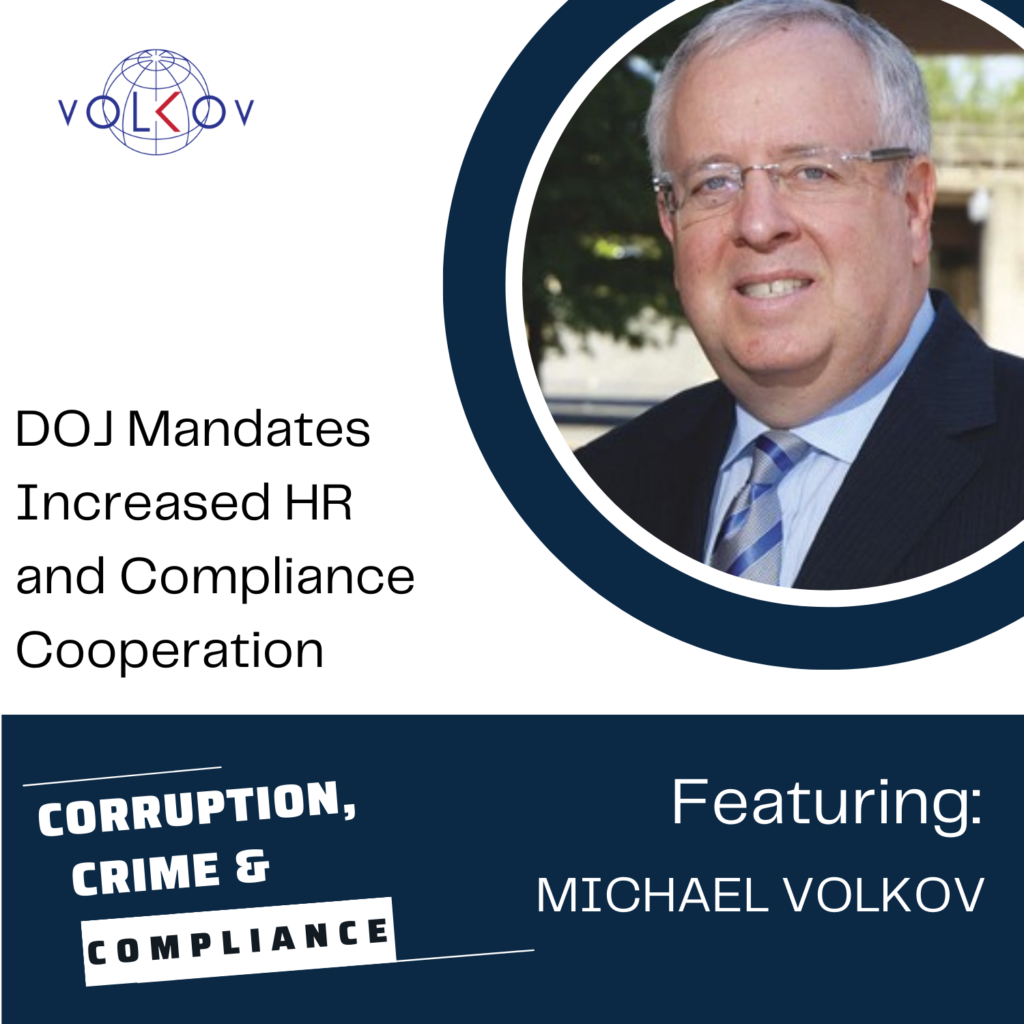
The relationship between compliance and HR can make or break a company’s culture of ethics and integrity. The DOJ’s revised Evaluation of Corporate Compliance Program requirements are pushing for greater cooperation and coordination between these two departments to create a robust and effective consequence management system. In this episode, Michael Volkov discusses the implications of these new requirements and emphasizes the need for HR and compliance to work together to achieve a culture of compliance and ethics.
Here are some key ideas you’ll hear Michael discuss in this episode:
- The Justice Department is taking a prescriptive approach to mandating greater cooperation between compliance and HR, as there have been too many problems between these departments in the past.
- HR and Compliance have joint responsibilities and obligations to achieve a culture of compliance and ethics.
- An effective HR and compliance partnership can leverage resources to ensure the overall advancement and success of the company.
- Companies must comply with the DOJ’s revised Evaluation of Corporate Compliance Programs and provide compliance with access to data generated across the organization. This is necessary to improve the effectiveness of the company’s compliance program.
- DOJ is now requiring companies to maintain a robust and enhanced investigation root cause system to address the specific elements required for a culture of ethics and integrity.
- An effective consequence management system can only occur when there is active cooperation and effective coordination between HR and compliance.
- The new consequence management system includes financial penalties resulting from clawbacks and deferred compensation schemes that are tied to compliance behaviors and requirements.
- DOJ is focusing on incentives and disincentives to enhance individual compliant conduct and overall accountability. Positive incentives include promotions, rewards, and bonuses and disincentives include deferment or escrow of compensation. CCOs need to champion the creation of this system.
- CCOs must be seated at the senior executive level of business operations to fulfill DOJ’s expectations for overall consequence management in the disciplinary area.
- Companies should consider cross-assignments of business managers to compliance and vice versa to promote career opportunities.
- “I have always advocated on behalf of a committee approach or some kind of independent, objective reviewer or the institution that metes out disciplinary actions to ensure consistency,” Michael says.
- Senior management must establish a framework for effective coordination and cooperation between HR, senior sales executives, legal, and compliance to achieve a culture of ethics and integrity.
- This framework should be empowered to work on behalf of the company to establish organizational justice.
KEY QUOTES:
“The Justice Department is now taking on the role of marriage counselor, not with individual couples, but with the critical corporate relationship – Ethics and Compliance and Human Resources.” – Michael Volkov
“With regard to disciplinary actions, there’s nothing worse, folks, than a disciplinary system that treats similarly situated employees and executives in different ways based upon where they sit or what their sales performance is… Justice has to be blind and consistent here.” – Michael Volkov
“Organizations that throw large contingent payouts for lucrative business contracts or for hitting specific targets should consider the impact of these incentives on sales employees and their ability and incentive to adhere to ethical requirements.” – Michael Volkov
Resources:


